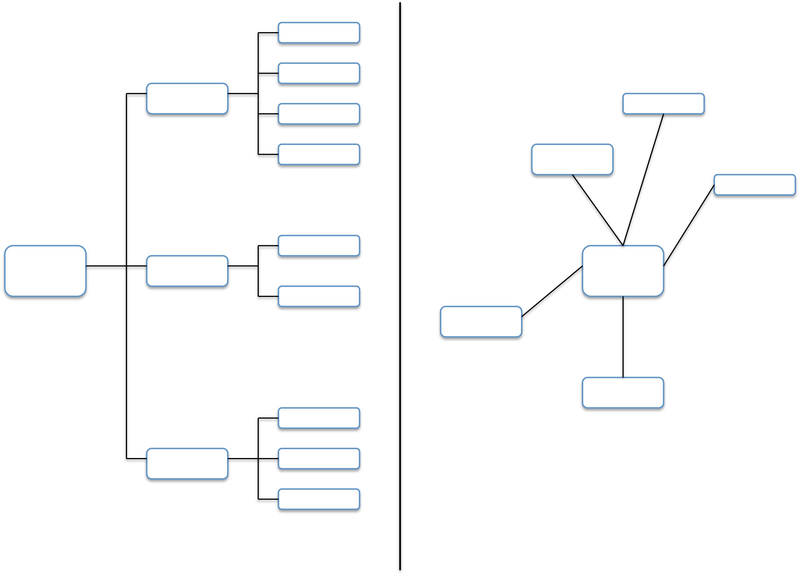
|

|

Tutorial Home | Site Map | Glossary | GEOSS URR | GEO |
|
| Preparing Input: Methods Questions | Next |

|
Methods for Populating the URR There are several ways of approaching the analysis of the various needs and requirements that can be published in the URR. In this part of the tutorial, we explain these approaches and show a few examples that emphasize the pros and cons of each method. The approaches separate into two main classes, which we denote as global and local approaches. The first one is more top-down and the second one more bottom up. In an global approach (left sketch), we take a starting point at a high level and rather general entry. This could be an application, user type, requirement, etc. We will use the examples of "integrated coastal zone management" (ICZM) and "risk-based planning" to illustrate this approach. A user type providing a good starting point could be "national government," and an example for a high-level requirement would be "atmospheric methane contents." Starting from the selected entry, we can identify all those activities and needs that related to this entry and then progress for each of them to the next level. In this approach, it makes sense to analyze first the dependencies within one relation, e.g., applications. In a local approach (right sketch), we can take any possible entry as the starting point and analyze the local environment of this entry. As an example for this approach, we will use the application Early Warning. While a local approach lends itself to a more ad hoc start and an immediate publishing, a global approach requires considerable analysis prior to the publication of any entries in the URR. The local approach requires some effort to ensure that the local environment is linked appropriately to the existing contents in the URR and does not duplicate already existing entries. The local approach can be used by any expert in a narrowly defined area of decision making. A global approach requires a broad expert knowledge of a comprehensive field. In the global approach it is also important to use as many of the existing entries and to link the determined structure with the rest of the URR at all appropriate levels. |